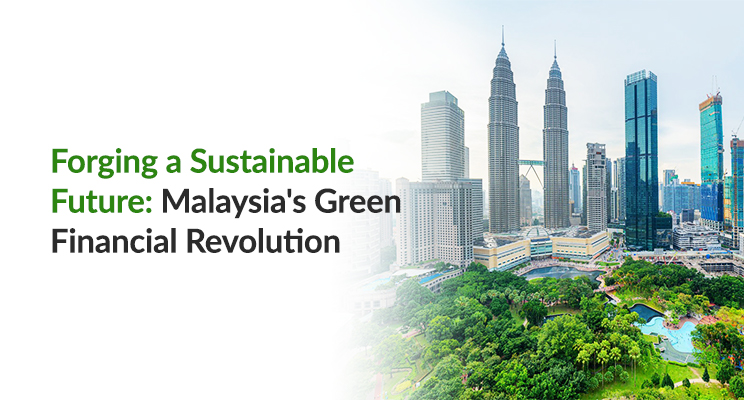Southeast Asia is rapidly emerging as a hub for sustainable finance. Malaysia is leading the charge and implementing innovative strategies to integrate environmental considerations into its financial systems, aiming to combat climate change and promote sustainable development.
Understanding Green Financing
Green financing refers to allocating capital towards projects that yield environmental benefits, such as renewable energy, energy efficiency, and pollution prevention. This financial approach is pivotal in transitioning to a low-carbon economy and achieving global climate targets, including those outlined in the Paris Agreement.
Malaysia’s Journey in Green Financing
Key Policies and Initiatives:
Green Technology Financing Scheme (GTFS): Launched to provide financial support for the development of green technologies, the GTFS has been instrumental in funding renewable energy and energy efficiency projects across Malaysia.
Bank Negara Malaysia’s Climate Change and Principle-based Taxonomy: This framework guides financial institutions in assessing and categorising economic activities based on their environmental impact, promoting transparency and accountability in green financing.
Notable Successes:
Malaysia has been at the forefront of issuing green sukuk (Islamic bonds) and facilitating investments in sustainable infrastructure and energy projects. As of June 2024, the country had categorised 317 bonds and sukuk as ASEAN Green Bonds on the BIX Malaysia platform, reflecting its commitment to sustainable finance.
Challenges:
Despite these advancements, Malaysia faces challenges such as limited public awareness and the need for standardised definitions in green financing, which can hinder the effective mobilisation of sustainable investments.

Opportunities and the Way Forward
Regional Collaboration
Enhanced cooperation within ASEAN can facilitate the standardisation of green financing frameworks, enabling more efficient cross-border investments in sustainable projects.
Innovation and Technology
Integrating financial technology (fintech) solutions can streamline green financing processes, improving transparency and accessibility for investors and project developers.
Public-Private Partnerships
Encouraging collaboration between the public and private sectors through incentives and awareness campaigns can mobilise additional capital towards sustainable initiatives, driving economic growth while preserving environmental integrity.
Global Implications
The efforts of Malaysia in advancing green financing are pivotal for their national sustainable development and serve as a model for other emerging economies. Their initiatives contribute significantly to global climate goals and the Sustainable Development Goals (SDGs), demonstrating the critical role of innovative financial instruments in addressing environmental challenges.
Through green financing, Malaysia has made commendable strides in integrating sustainability into its financial systems. While challenges remain, their ongoing efforts and commitment to innovation position them as leaders in the global movement towards a sustainable future.


